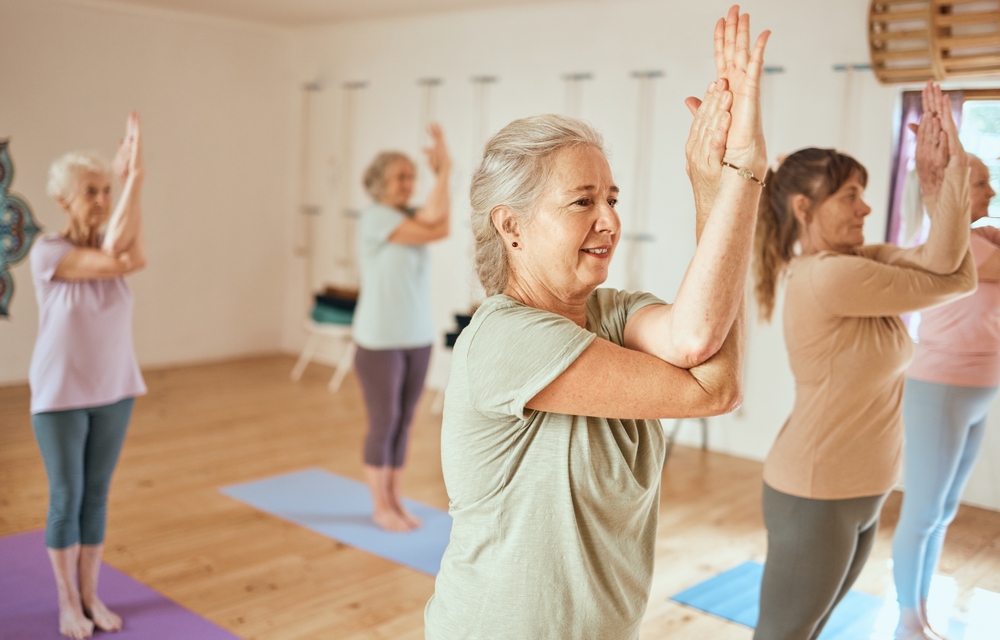Evidence-Based Techniques for Managing Everyday Stress
Everyday stress can accumulate and affect wellbeing across work, relationships, and physical health. This article summarizes practical, evidence-based techniques—focused on breathing, movement, sleep, nutrition, and social supports—to help reduce daily strain and build resilience with sustainable habits.

Everyday stress is a common part of modern life, but practical strategies can reduce its impact and support long-term wellbeing. This article summarizes evidence-based techniques that target daily triggers and promote resilience through simple habits in breathing, movement, sleep, nutrition, and social support. The goal is balanced approaches that fit routine life and improve day-to-day functioning.
This article is for informational purposes only and should not be considered medical advice. Please consult a qualified healthcare professional for personalized guidance and treatment.
Mindfulness and breathing practices
Mindfulness techniques and paced breathing are low-cost, accessible tools for moderating the body’s stress response. Short sessions of mindful breathing—focusing on slow inhales and exhales for one to five minutes—can reduce perceived tension and improve attention. Techniques such as box breathing (equal inhale, hold, exhale, hold) or diaphragmatic breathing help activate the parasympathetic nervous system and can be built into work breaks or a morning routine. Regular mindfulness practice, even 10 minutes daily, is associated with improved emotion regulation and greater resilience, and can be combined with relaxation practices like progressive muscle relaxation for additional benefit.
Nutrition, hydration, and recovery
What you eat and drink affects energy, mood, and stress tolerance. Regular meals that balance protein, complex carbohydrates, and healthy fats support steady blood glucose and cognitive performance. Hydration influences fatigue and concentration—aim to include water-rich foods and regular fluid intake throughout the day. Recovery-focused nutrition after exercise and during busy periods—adequate protein for muscle repair, carbohydrates for replenishing energy, and micronutrients from varied fruits and vegetables—supports overall recovery and reduces physiological stress. Prioritizing small, consistent changes to diet and hydration is more sustainable than drastic shifts.
Sleep, routine, and restorative habits
Consistent sleep and daily routines anchor stress management. Aim for regular bed and wake times, create a wind-down routine that limits screens and stimulating activities before sleep, and design your bedroom environment for comfort and darkness. Short naps can help in some contexts but avoid long late-afternoon naps that disrupt nighttime rest. Integrating restorative habits—like a brief evening stretching sequence, light reading, or calming breathing—signals the body to transition from active modes to recovery. Over time, improved sleep quality supports better mood, cognitive function, and resilience to everyday stressors.
Movement, posture, and ergonomics
Physical movement reduces tension, improves circulation, and supports mental wellbeing. Regular activity—whether brisk walking, structured fitness, or short movement breaks—helps regulate stress hormones and promotes recovery. Attention to posture and ergonomics during work and daily tasks reduces musculoskeletal discomfort that can amplify stress. Simple changes like adjusting chair height, monitoring screen position, and taking standing or stretching breaks every 30–60 minutes can reduce strain. Combining mobility work with moderate-intensity exercise supports both fitness and recovery.
Stress, resilience, and mental habits
Building resilience involves shifting responses to stress through cognitive and behavioral habits. Practices such as reframing stressful thoughts, setting realistic goals, and breaking tasks into manageable steps help reduce overwhelming feelings. Habit formation—setting small, repeatable actions tied to existing routines—increases the likelihood of sustained behavior change. Tracking progress, celebrating incremental gains, and using self-compassion when setbacks occur supports ongoing adaptation. Psychological approaches like problem-solving, activity scheduling, and brief acceptance strategies can reduce rumination and improve coping.
Community, self-care, and balance
Social connections and self-care play a central role in coping with everyday stress. Maintaining relationships, sharing practical concerns with trusted people, and participating in community activities provide emotional support and perspective. Self-care encompasses multiple domains: physical (movement, sleep, nutrition), mental (mindfulness, hobbies), and social (time with supportive people). Striving for balance involves delegating where possible, setting boundaries, and designing a routine that integrates fulfilling activities alongside obligations. Community resources and local services can complement personal efforts when additional support is needed.
In summary, managing everyday stress is most effective when techniques are integrated into daily routines and tailored to individual needs. Evidence-based approaches—regular breathing and mindfulness, adequate sleep and recovery, balanced nutrition and hydration, consistent movement and ergonomic care, resilient mental habits, and strong social supports—work together to reduce strain and improve overall functioning. Small, consistent adjustments applied over time can lead to meaningful improvements in stress tolerance and daily wellbeing.






